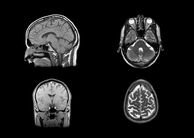Can Religious-Based Ethics Play a Role in Development?
By
2011, Vol. 3 No. 08 | pg. 1/1
IN THIS ARTICLE
KEYWORDS
Development is closely linked to the idea of progress. Therefore the way in which progress is quantified, whether through economic, social or spiritual values, determines the way in which we conceptualize development (Power 2005). Religious beliefs are similarly ambiguous, although this arises from the sheer diversity of faiths present in the world today. Consequently the relationship between development and religion is hauntingly complex and so variable that it eludes simple definition (Alkire 2007). Nevertheless, since the first missionary endeavors of the colonial era, religious-based ethics have, for better or worse, always played a role in development (De Kadt 2009). Despite their considerable contributions to healthcare and education in the global South, faith-based organizations (FBO) have traditionally been marginalized in international development discourses (Marshall 2001; Selinger 2004; Clarke 2006). However the 1990’s witnessed a significant change in the development agenda when the World Bank began emphasizing a need for greater collaboration between secular and religious organizations (Olson 2008). In 1998 the then president of the World Bank, the Archbishop of Canterbury and a small group of senior leaders from nine major world faiths met to discuss the role of FBOs. This meeting provided the foundation for the World Faiths Development Dialog, a non-profit organization working at the intersection of religion and global development (WFDD 2010). This marked a growing interest in FBOs and their position in development practices. Given these recent changes to the faith-based development agenda which acknowledge the historical and contemporary role of religion in development, I contend that religious-based ethics do play a role in development. The more imperative question is ‘should religious-based ethics play a role in development?’Through an exploration of World Vision’s (WV) Christian-inspired values this essay argues that the dilemmas posed by proselytizing and religious convictions outweigh any positive gains from a religious-based ethic. WV, it should be noted, represents a small fraction of the diversity of FBOs currently engaged in development (Clarke 2006) and this fact must be taken into consideration. However, the specific example of WV also provides a means to ground theoretical work within the faith-based development agenda. To focus the discussion, there follows a brief description of religious-based ethics before the main benefits and then problems of WV’s Christian ethic are explored. The benefits have been identified as religious motivation and an understanding of faith as a lived practice. Religious-Based EthicsBefore considering how religious ethics influence development it is important to distinguish religious beliefs from religious-based ethics. The former simply describes what an individual believes, whereas the latter conveys an ethical framework derived from a religious rationale (Huntington 1993). It is best understood through the way it guides behavior and prescribes notions of right and wrong (Holloway and Valins 2002; Tomalin 2006). Religious-based ethics strongly influence culture and partly inform an individual’s world view (Huntington 1993). Weber (1976) argued that their effect was powerful enough to drive the emergence of industrial capitalism in Europe, and while his essay was criticized on other accounts his ideas have since gained credence (Hamilton 2000; Inglehart 2000). Understanding how religious ethics shape organizations and the work they do is the first step to understanding the relationship between religion and development (Olson 2008). Benefits of Religious-Based EthicsMotivation and DedicationBoth secular and religious development organizations have the shared humanitarian goal of alleviating and tackling the causes of poverty. Their difference lies in their motivation (Brandt 1995; Alkire 2007). Unlike secular organizations religious groups draw on the spiritual values embedded in their faith to provide the logic for development work, and this can act as a powerful motivator (Clarke 2006). For instance, the policies and practices of WV reflect a desire to be ‘Christ-like’: healing the sick, feeding the hungry, clothing the naked and comforting the outcast (Tripp 1999: 62). A look at WV’s core values reaffirms these assertions, stating our ‘mission is to follow our Lord and Saviour Jesus Christ in working with the poor and oppressed...’ (WV International 2010: Who We Are). The Christian ethic present in WV as an organization and among its staff instils a sense of duty that motivates their development work (Tomalin 2006). Religious motivation has played an important part in development over the years. De Kadt (2009: 782) writes of the 1970’s in Africa when public healthcare in rural areas was so sparse that religious facilities often provided the only available resource, stating ‘the dedication of such missionaries, mostly working in extremely difficult conditions, to the well-being of their poor patients was admirable’. Their role became even more crucial when IMF structural adjustment policies forced many developing governments to heavily reduce social provisions (Clarke 2006). Further still, religious motivation has been known to induce FBOs to challenge dictatorships and defend human rights, such as the Catholic Church in Latin America during the 1970’s and 1980’s (De Kadt 2009). Understanding Religion as Lived Practice and CultureDevelopment is generally associated with the global South where religion plays a more prominent role in the public sphere than it does in European society (Martin 1990; Chesnut 2003). Tripp (1999) argues that WV’s members’ faith enables them to understand how religion can manifest in daily life and cultural traditions, while secular approaches could be comparatively ineffective and possibly insulting. She provides an example set in Haiti during the 1970’s where a high number of babies were dying of tetanus. WV discovered that midwives were using mud when cutting the umbilical cord to prevent evil spirits from entering the newborn. Talk of infection had failed, however WV’s explanation of a loving God rendered the practice unnecessary and many stopped. Similarly a member of another Christian NGO explained that their faith made them sensitive to traditional beliefs, which contrasted against ‘technical people’ who worked without consulting communities. The Zimbabwe regional manager of WV thought of the ‘Christian aspect of World Vision [as] something that made its work particularly effective’ (Bornstein 2002: 15, 12). The spiritual perspective gained through religious-based ethics can arguably be an advantage in many developing countries. Even secular societies are constructed from religious traditions and it would therefore be foolish to ignore indigenous spirituality in the global South (Holloway and Valins 2002). However, I do not agree entirely with Tripp’s (1999) conclusions. While it is important to understand the ways in which faith manifests as lived practice and through culture, I do not believe that being religious is a necessity. Religious awareness and sensitivity are attributes that secular organizations are equally capable of achieving, although I will concede that FBOs are potentially more attentive to the matter given their own beliefs. Problems with Religious-Based EthicsProselytizing and DevelopmentProselytizing is the act of converting, or attempting to convert, people from one religion or world-view to another (Oxford University Press 2010). The same faith-based ethics that motivate missionaries to engage in development can generate a desire and sense of duty to spread their faith and convince others (Bornstein 2002; De Kadt 2009). For many FBOs including WV, proselytizing and development become one and the same, inseparable in theory and practice. To return to Tripp’s (1999: 62) example in Haiti, she argues that ‘a spiritual message, combined with practical help can be more effective in improving the lives of the poor than purely technical help’. However this equated to replacing a spiritual world-view with a Christian one, and although it may not have been framed as such, is essentially proselytizing. The use of ‘technical help’ in proselytizing is also morally questionable especially when material and technological improvements are presented as part of or conditional to religion. The problem lies with the fact that for WV, proselytizing is development and development is Christianity (Bornstein 2002). The amalgamation of development and proselytizing raises questions vis-à-vis the priorities of FBOs. Bornstein found that WV employees viewed the world through the binary concept of evangelized and unevangelized suggesting that their concern lay more with religion. In addition employees applied a further binary view on top of the previous; developed and developing. This demonstrates that for WV development is only successful if spiritual poverty is tackled in tandem with material poverty. The Zimbabwe regional manager of WV stated that ‘we [WV] would prefer a situation where there is no Christianity at all’ (Bornstein 2002: 13). Oddly she was less concerned with finding populations where the physical need was greatest; however this may just show that she felt this was the same as not being Christian. This matter essentially becomes a moral debate: is it ethical to proselytise through development or not? The religious-based ethics of WV prescribe that it is. Furthermore proselytizing is a lived practice of Christianity and WV see it as a means through which to practice their faith. While the inseparability of development and proselytizing does not sit comfortably with me, I am unwilling to assume the authority to define right and wrong in such a situation. This is an impasse that has likewise been reached in faith-based development discourses and it is unlikely to be resolved any time soon. Religious ConvictionThe second problem associated with faith-based ethics is the often strong religious conviction they can inspire. Although this stems from the same rationale that creates the dedication referred to earlier, it becomes problematic when individuals are convinced that their religious identity is the only one that matters. De Kadt (2009: 784) warns that ‘the conviction that certain beliefs and behaviors are right because ‘God told us so’, places clear limits on what is regarded as acceptable ‘development’’. Certainly, given the importance of development and the complex nature of many development issues, being open-minded and open to criticism seems a necessity. Although religious-based ethics are not prescriptive of self-assured and inflexible views, religions the world over tend to project their own world-view as the ultimate truth. The idea that development is Christianity, creates problems when coupled with religious conviction. Essentially Christianity becomes the only avenue through which people can develop so the work of all other faiths and secular groups is viewed as futile. This was revealed in Bornstein’s (2002) article where WV felt non-Christian beliefs only interfered with development. Alkire (2007) also warns that religion may become a practical problem when FBOs obstruct development or view it as a threat because it promotes a secular world-view. Not only does this speak volumes about the religious attitude instilled by faith-based ethics but it has serious ramifications for collaboration efforts. ConclusionThe key benefits of religious-based ethics are the motivation and dedication they can inspire in humanitarian work and an understanding of the significance religion can play in cultural traditions. These advantages have had a great impact in the global South through the actions of FBOs. The problems associated with religious ethics to some extent mirror the benefits. For example dedication is a positive facet of an intolerant religious conviction, just as spiritual awareness lies on the same plane as thinking religious identity is the only consideration. The problems discussed in this essay pose moral and practical difficulties whereas the benefits are not unobtainable by secular organizations. On balance I would argue that the problems caused by religious-inspired ethics cannot be overlooked for the sake of the benefits. Although the recent changes to the faith-based development agenda are a positive step forward, they have caused a rush in academia to explore the relationship between religion and development. I would propose that there is a fine line between thoroughly researching the matter and endorsing the actions of faith-based development work (McLennan 2007). It would be wiser to seek a course of action that encourages the recognition of the social significance of religion while handling it in a constructive manner. As a final note I wish to acknowledge the imperfect reality within which these debates are positioned. While I may have reservations as to the role religion should play in development I am more than aware that FBOs provide a service to which there is no obvious alternative. Their assistance makes a significant difference to the developing countries where they work. In this instance providing imperfect development may be a better alternative than holding out for a perfect solution to arise. ReferencesAlkire, S. (2007) ‘Religion and Development’ in Clark, D. A. (ed) The Elgar Companion to Development Economics. Cheltenham: Edward Elgar Publishing, pp. 502-508. Bornstein, E. (2002) ‘Developing Faith: Theologies of Economic Development in Zimbabwe’ Journal of Religion in Africa 32(1): 4-31. Brandt, D. (1995) ‘The Poor and the Lost: A holistic View of Poverty’ Missiology 13(3): 260-266. Chesnut, R. A. (2003) ‘A Preferential Option for the Spirit: The Catholic Charismatic Renewal in Latin America’s New Religious Economy’ Latin American Politics and Society 45(1): 55-58. Clarke, G. (2006) ‘Faith Matters: Faith-based Organizations, Civil Society and International Development’ Journal of International Development 18(6): 835-848. De Kadt, E. (2009) ‘Should God play a role in development?’ Journal of International Development 21(6): 781-786. Ghandour, A. (2003) ‘Humanitarianism, Islam and the West: contest or cooperation?’ Humanitarian Exchange 25: 14-17. Hamilton, A. (2000) ‘Max Weber’s Protestant Ethic and the Spirit of Capitalism’ in Turner, S. (ed) The Cambridge Companion to Weber. Cambridge: Cambridge University Press, pp. 151-169. Holloway, J. and Valins, O. (2002) ‘Editorial: Placing religion and spirituality in geography’ Social and Cultural Geography 3(1): 5-9. Huntington, S. (1993) ‘The Clash of Civilisations?’ Foreign Affairs 72(3): 22-49. Inglehart, R. (2000) ‘Culture and Democracy’ in Harrison, L. E. and Huntington, S. P. (eds) Culture Matters: How Values Shape Human Progress. New York: Basic Books, pp. 88-97. Marshall, K. (2001) ‘Development and Religion: A Different Lens on Development Debates’ Peabody Journal of Education 76(3+4): 339-375. Martin, D. (1990) ‘Tongues of Fire: The Explosion of Protestantism in Latin America’ Cambridge: Blackwell. McLennan, G. (2007) ‘Towards postsecular sociology?’ Sociology 41(5) 857-870. Oxford University Press (2010) ‘proselytize’ [online]. Available at http://oxforddictionaries.com/view/entry/m_en_gb0667480#m_en_gb0667480 [accessed 10/11/10]. Power, M. (2005) ‘Worlds apart: global difference and inequality’ in Daniels, P., Bradshaw, M., Shaw, D. and Sidaway, J. (eds) An introduction to Human Geography: Issues for the 21st Century. 2nd Edition. Essex: Pearson Education Limited, pp. 185-212. Selinger, L. (2004) ‘The Forgotten factor: The Uneasy Relationship between Religion and Development’ Social Compass 51(4): 523-543. Tomalin, E. (2006) ‘Religion and a rights-based approach to development’ Progress in Development Studies 6(2): 93-108. Tripp, L. (1999) ‘Gender and Development from a Christian perspective: Experience from World Vision’ Gender and Development 7(1): 62-68. Weber, M. (1976) ‘The Protestant Ethic and the Spirit of Capitalism’. 2nd Edition. London: George Allen and Unwin. World Faiths Development Dialog (2010) ‘History and Objective’s of the World Faiths Development Dialog’ [online]. Available at http://berkleycenter.georgetown.edu/wfdd/ about [accessed 10/11/10]. World Vision International (2010) ‘Who We Are’ [online]. Available at http://www.wvi.org/wvi/wviweb.nsf/maindocs/3F50B250D66B76298825736400663F21?opendocument [accessed 10/11/10]. Suggested Reading from Inquiries Journal
Inquiries Journal provides undergraduate and graduate students around the world a platform for the wide dissemination of academic work over a range of core disciplines. Representing the work of students from hundreds of institutions around the globe, Inquiries Journal's large database of academic articles is completely free. Learn more | Blog | Submit Latest in Theology |

















